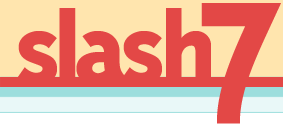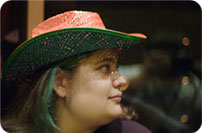What I’m reading…
I’m still on the quest to make this blog more like a blog—I think the articles are eventually going to be treated differently.
I am a huge believer in the power of books. Books are the one thing I own “in excess;” my favorite charity is book-related and bookstores tend to create in me that “kid-in-a-candy-store” that electronics or clothes stores do for other people. Since I rarely talk about books, I assume that it may be a bit mysterious where some of my rants or ideas come from, but they’re like as not coming from books and/or observations of the Real World. Books have made me the person I am.
Lately I’ve gone on a real book-buying spree (more so even than usual). Shipping Twistori helped me shake burnout, so I can only assume that’s why I’m ripping through them like a sugared-up 6-year-old through a department store.
So, here’s a list of the books that are currently stimulating my grey matter:
#1: The Architecture of Happiness
A book on the way architecture (and art, and really, design) can claim to affect the human condition, and how it does so. By Alain de Botton.
I’ve loved Alain de Botton since I stumbled across his novel “On Love” while volunteering in The Book Thing. It was well-printed, bright pink and had nice typography—that’s why it caught my eye. (I’m a designer, what can I say?) It was also brilliant. And I later found out that he wrote books on philosophy. I own all of them and have devoured every one.
This one, his latest, is his hardest to read. It’s not that it’s not well-written—no, it’s incredibly good. But it’s so densely packed. It seems like I’ve dogeared or marked almost every third page for something deeply insightful or interesting, some thought that made me go “Aha!”, to which I wish to return.
This makes it not an ideal bedtime book. It has to be savored, read while fully awake, and in small doses so it can sink in and steep.
#2: Death March
By Edward Yourdon.
It’s about projects. The kinds of projects you’d assume it would be, with a name like Death March. Remarkably compelling—I was hooked from the snarky, real, and tell-it-like-it-is front page. He doesn’t bow to the common convention of turning tail and licking the boots of management, hoping to impress it.
So far, he advocates all-out war-like tactics to get projects done, if you find you really must—but his first advice is to quit the job because death march projects are a symptom of a very deep, very insidious, very unshakeable disease infecting the corporation.
I’ve really just started this one but so far I am very impressed.
#3: Cryptonomicon
An unbelievable novel of cryptology, technology, startups, war, and of course, humanity. Neal Stephenson is one of my most favorite fiction authors and Crypto holds up very well to repeat readings. (My absolute favorite of his has to be The Diamond Age: Or, a Young Lady’s Illustrated Primer, however.)
Like all very good fiction, there are universal truths, insights and lessons to be learned from this one. Stephenson is an expert on humanity and he gets the facts on the other topics spot-on, too. (I originally read it, by sheer coincidence, along side The Code Book: The Science of Secrecy from Ancient Egypt to Quantum Cryptography and it was a total braingasm to read about the real history/science in the latter and then see it talked about in the novel.)
Crypto is thus also not a very good bedtime book because it really gets my mental gears turning.
#4 Guards! Guards!
By Terry Pratchett.
It’s like the book version of a funny TV show. This is older Pratchett, back when he still had a sharp edge, but not as insightful as some of his other novels (e.g. Small Gods). I’ve never really found Pratchett to be laugh-out-loud funny, but it’s a nice break because with all of the other items on my list my brain is exploding. And I’m really, really running out of sticky notes.







